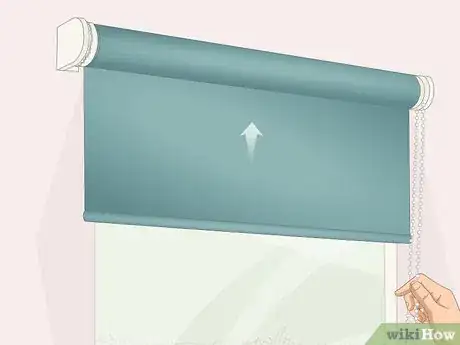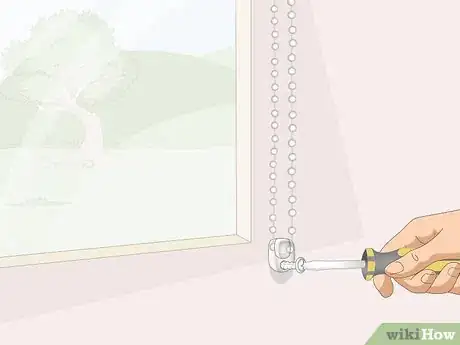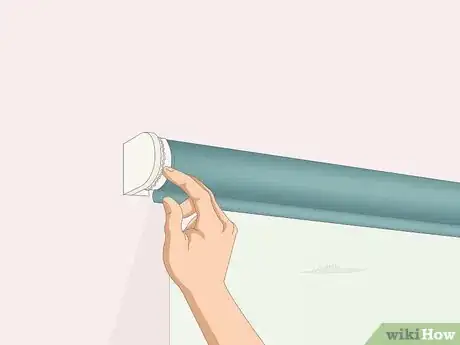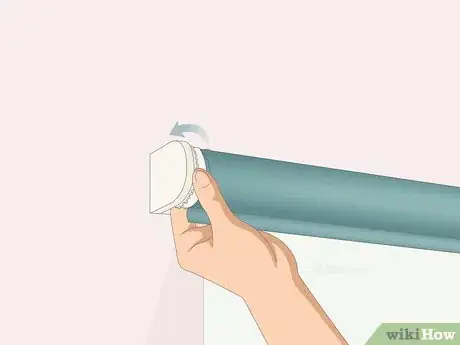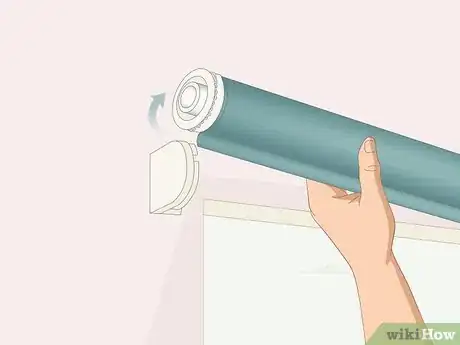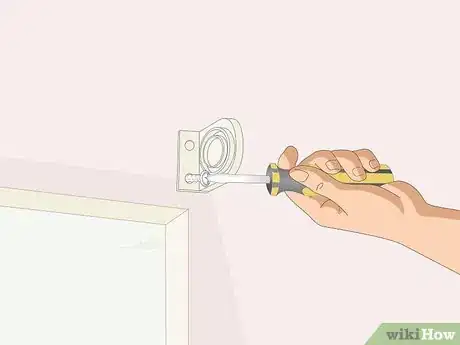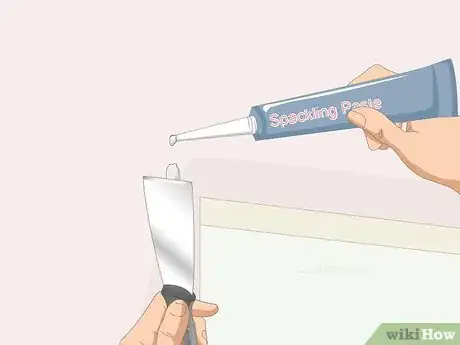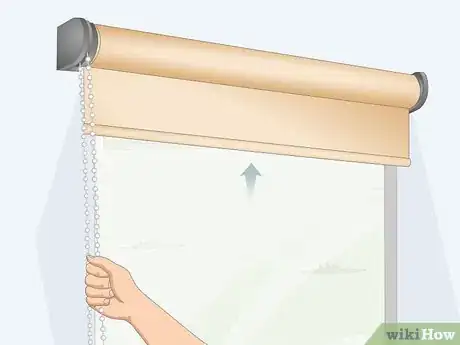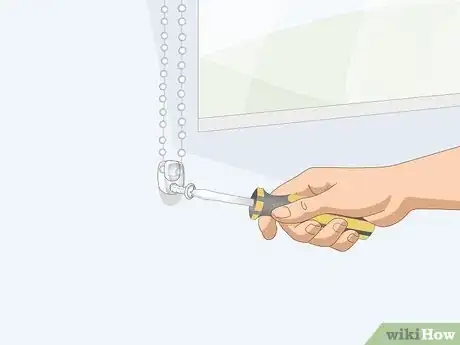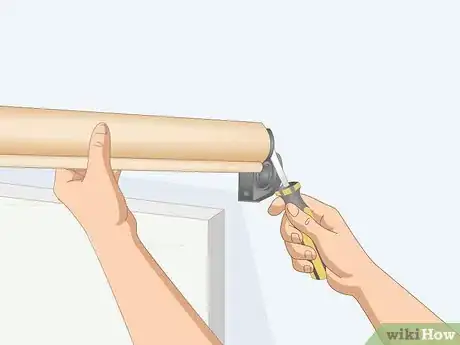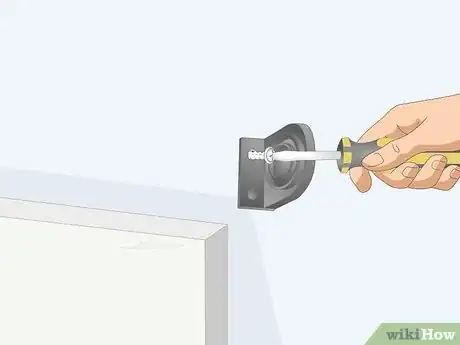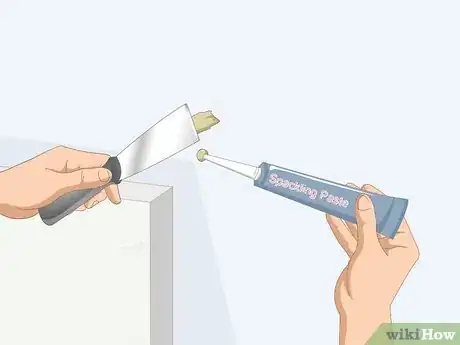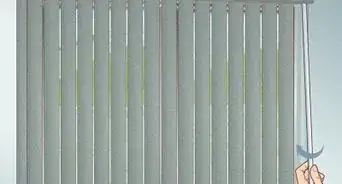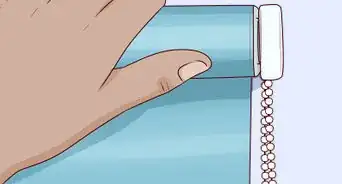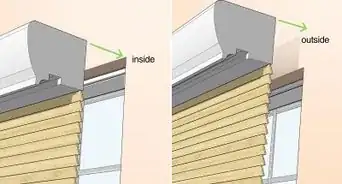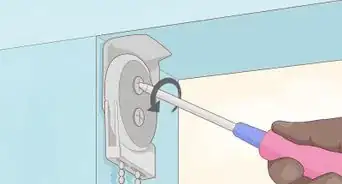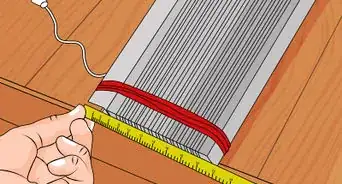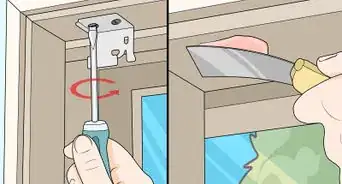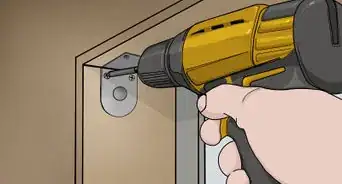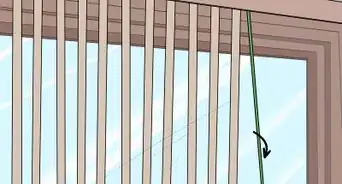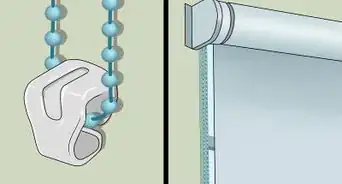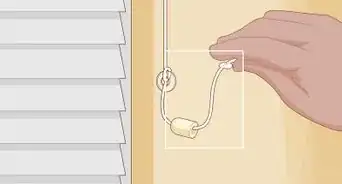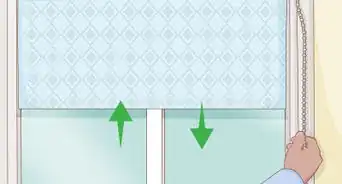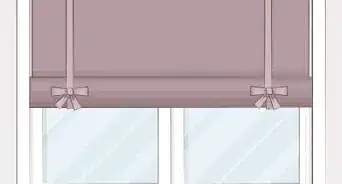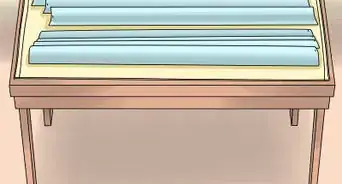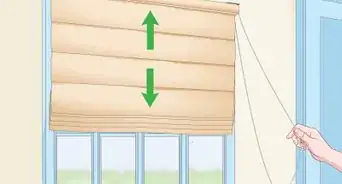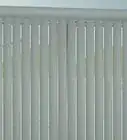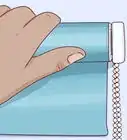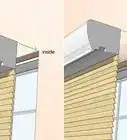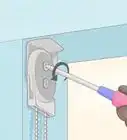This article was co-authored by wikiHow Staff. Our trained team of editors and researchers validate articles for accuracy and comprehensiveness. wikiHow's Content Management Team carefully monitors the work from our editorial staff to ensure that each article is backed by trusted research and meets our high quality standards.
This article has been viewed 63,773 times.
Learn more...
If you’re ready to redecorate, you might need to remove existing blinds. How you remove them depends on whether they’re standard or cassette roller blinds. Standard roller blinds show the fabric rolled up at the top while cassette roller blinds have a headrail at the top hiding the rolled fabric from view. To remove the blinds, you’ll need to know how to identify the parts and how they’re put together. Even if you’re not good with home improvement projects, you can use some simple tools to remove your old blinds and leave your wall looking like new.
Steps
Removing Standard Shades
-
1Roll the blind up all the way. Pull the chain tension device to roll the blind up. This will make it easier to handle and store it once it’s removed. If your blinds are broken and won’t roll up, spin the blind spool counter-clockwise (when you’re looking at it from the right) with your hands until it’s completely rolled up.[1]
- The spool is the cylindrical bar that the fabric wraps around, much like the bar that holds a roll of tape in place.
-
2Remove the screw from the lower chain safety clip. The chain safety clip is where the chain pulley attaches to the wall. It’s usually located about ¾ of the way down the blind and holds the chain that controls the blind’s position. Insert the tip of a screwdriver into the head of the screw and turn it to the left to loosen and remove the screw.[2]
- Skip this step if your blinds do not have a pulley chain.
Advertisement -
3Locate the safety clamp or disc on one side of the roller. Standard roller blinds have brackets on both sides that hold the roller in place. One of the brackets has a post that holds the roller and the other has a safety clamp that secures the roller to the brackets. You may need to use a step-ladder to access the brackets on the right and then the left side.[3]
- If you have outside-mounted blinds with bracket covers, remove these by pulling them toward you to see which side has the clamp.
-
4Open the clamp on the mounting bracket. Once you’ve located the bracket that has the clamp, which is commonly shaped like the letter “C,” lift it up. This will allow the spool on that end of the roller to be lifted out of the slot.[4]
- If there is no clamp, your blinds might have serrated disc on one end, typically the one opposite of the chain drive. Rotate the disc upwards until you hear a small click to free the blind from the bracket.[5]
-
5Lift the roller out of both brackets. Each bracket has a slot holding the roller in place. First, lift the side of the roller with the clamp out of the slot, then lift the roller on the opposite side out of its bracket. If one of the ends is spring loaded and requires you to slightly push it toward the bracket, you’ll need to lift that one out first instead.[6]
- Depending on the type of brackets you have, you may need to slide the blind slightly sideways to remove it from the brackets.
-
6Use a screwdriver to take out the 2 screws holding the brackets in place. Place the tip of a screwdriver inside each of the screw heads and twist them to the left until they’re loose enough to remove. Throw the screws away or keep them for creative reuse. Remove the brackets from the wall once the screws are out.[7]
- You can technically reuse undamaged screws to hang paintings or another set of blinds, but it’s not recommended because they can be bent or weakened and not hold as much weight.
-
7Fill the holes with spackling paste. If you want to fill the remaining holes, squeeze a small amount of spackling paste into each one. Then use a putty knife to spread it smooth. Let it dry for about 2 hours before sanding away any discrepancies around the edges of the paste with fine-grit sandpaper (180 to 220 grit).[8]
- To fill small holes, use “all purpose” or “lightweight” pre-mixed spackling paste.
- In a pinch, you can also fill the hole with toothpaste and spread it evenly using a playing card. If you have colored walls or if the toothpaste doesn’t match the color, paint over the spackled area once it’s dry.
Removing Cassette Roller Shades
-
1Roll the blinds up. Pull the chain tension device to roll the blinds up before starting the removal process. This will keep the blind neatly wrapped so you can remove and store it easier.[9]
- If your blinds are broken and won’t roll up, spin the blind spool counter-clockwise (when you’re viewing it from the right) with your hands until it’s completely rolled up.
-
2Use a screwdriver to remove the chain tension device. The tension device is the pulley system on one side of the blinds that allows you to open or close the blinds. It’s usually located on the right-hand side but, depending on your blinds, might be on the left. Roll up the blinds before unscrewing the screws attaching the lower piece to the wall. Then do the same for the connecting piece at the top. It’s usually located to the right of the right-hand bracket.[10]
- If your roller blinds don’t have a chain tension device, skip this step.
-
3Use a screwdriver to pry the cassette off of the brackets. Wedge the flat end of a screwdriver into the space at the top of the cassette between the cassette and the bracket. Move the handle of the screwdriver down or turn it to increase the gap until the cassette snaps away from the bracket. Do this for each place where the cassette meets a bracket before completely removing the cassette.[11]
- If you have 3 brackets, start by wedging off the cassette near the 2 end brackets before wedging apart the center area.
-
4Unscrew the screws attaching each bracket to the wall. Insert the end of a screwdriver into the head of a screw and turn it to the left until it’s loose enough to pull out. Repeat this process for each screw on all of the brackets. Then remove the brackets from the wall and set them aside.[12]
- Typically, each bracket will have 2 screws.
-
5Fill the holes with spackling paste to leave a smooth, clean wall. If necessary, clean the wall to remove any dust or debris before squeezing a little spackling paste into each hole. Then use a putty knife to scrape away any excess paste before letting it dry for about 2 hours. Lightly sandpaper the area with 180 to 220 fine-grit sandpaper to leave the wall looking like new.[13]
- Use “all purpose” or “lightweight” pre-mixed spackling paste for small holes.
Warnings
Warnings
- Don’t stand on an unsteady surface in order to reach the top of the blinds. Use a sturdy ladder or step-stool.⧼thumbs_response⧽
- Don’t stand on an unsteady surface in order to reach the top of the blinds. Use a sturdy ladder or step-stool.⧼thumbs_response⧽
References
- ↑ https://youtu.be/K1DRKJb9cGM?t=18
- ↑ https://youtu.be/K1DRKJb9cGM?t=29
- ↑ https://www.blindschalet.com/aqq-155-remove-roller-shades.html
- ↑ https://www.blindschalet.com/aqq-155-remove-roller-shades.html
- ↑ https://youtu.be/K1DRKJb9cGM?t=47
- ↑ https://www.blindschalet.com/aqq-155-remove-roller-shades.html
- ↑ https://www.blindschalet.com/aqq-155-remove-roller-shades.html
- ↑ https://www.bobvila.com/articles/how-to-spackle/
- ↑ https://youtu.be/K1DRKJb9cGM?t=18
- ↑ http://download.normanwindowcoverings.com/Document/Service/Install/pdf/RR%20Installation%20Instruction%20for%20Roller%20Shade%20with%20Cassette.pdf
- ↑ http://download.normanwindowcoverings.com/Document/Service/Install/pdf/RR%20Installation%20Instruction%20for%20Roller%20Shade%20with%20Cassette.pdf
- ↑ https://www.blindschalet.com/aqq-155-remove-roller-shades.html
- ↑ https://www.bobvila.com/articles/how-to-spackle/
